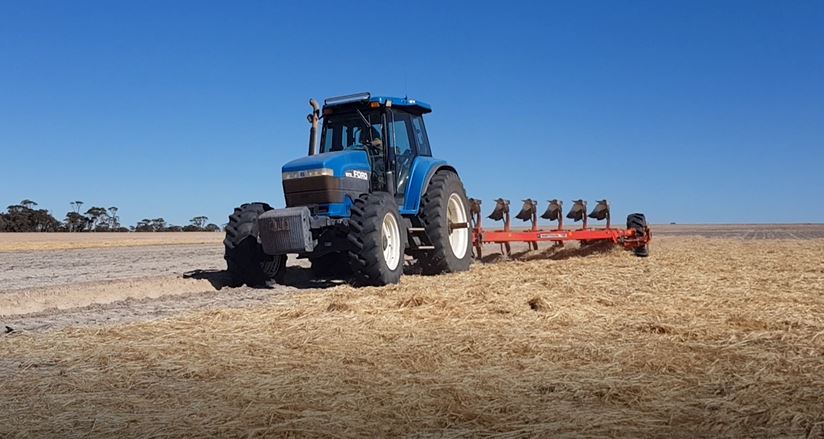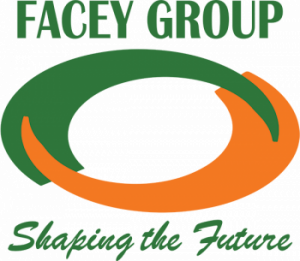
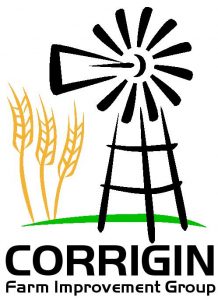
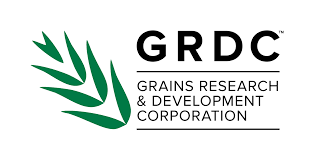

Organic Soil Ameliorant Project
Incorporation of organic soil ameliorants to boost productivity of sandy soils in the medium to high rainfall zones of the Wheatbelt of Western Australia.
Key Messages:
- Incorporating organic soil ameliorants to boost the productivity of sandy soils requires further research in medium rainfall areas.
Project Summary:
The Organic Soil Amelioration Project investigated if the incorporation of organic soil ameliorants; hay, stubble/straw, and manure would increase crop productivity on sandy soil types. The project was conducted over three seasons (2020-2022).
The grower scale demonstration site was selected for its poor-performing sand soils and history of lower-than-average yields. Eight different treatments were selected for the project, including three organic ameliorants applied at different rates and incorporated with different amelioration tools (table 1). A grower practice of Mouldboarding (with no addition of organic ameliorant) was selected along with a nil control as a benchmarking treatment. To gauge yield response to other common soil amelioration practices, an application of clay incorporated by a Speed Tiller was also included for comparison.
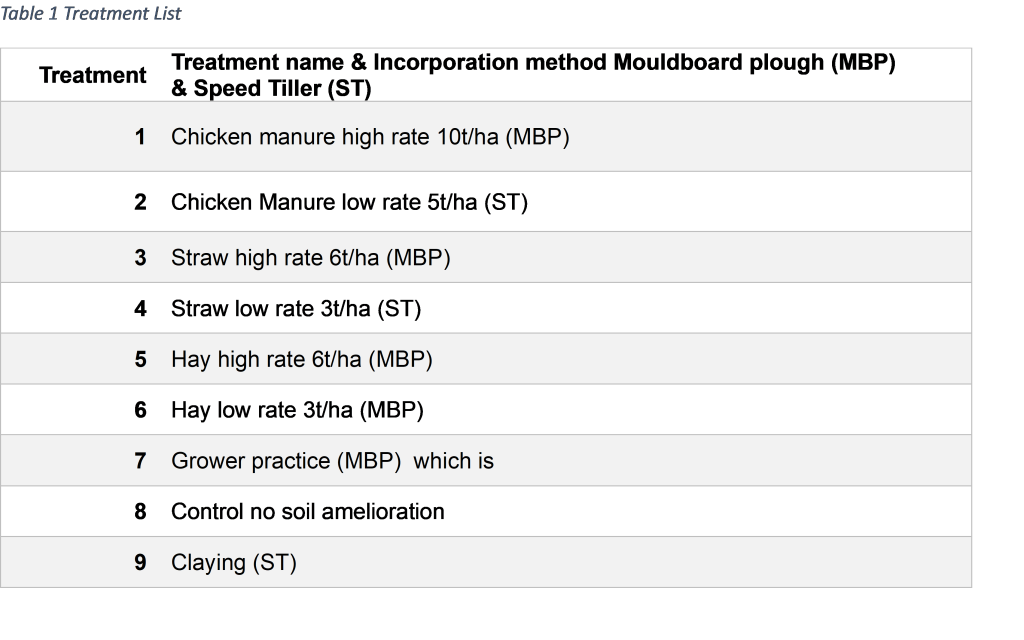
The crop growth at the trial site was impacted by the wind erosion and furrow fill that occurred following the seeding in 2020. Ameliorant type, rate, and incorporation method from 2020 did not influence grain yield in the 2021 season. Preliminary results for 2022 found amelioration treatments with high chicken manure and straw rates performed better than other ameliorants in the practice, but the grower’s practice performed the best. This paired with the control performing similar to the other amelioration treatments may suggest that there is no effect on yield when incorporating organic soil ameliorants into sandy soils. Analysis of data is still being processed and will give us a better understanding of how the trial performed over the 3 years. A full project report will also include a CFIG site that was sown west of Corrigin and will be published in the 2022 Trials Booklet.
Project Background:
Approximately 35% of the soils in the Western Region are made up of sandy soils, including deep sands and sandy duplexes. The sand component of these soil profiles is inherently infertile, has low organic matter levels, low water holding capacity, can have water repellence and compaction issues. To increase the productivity of these ‘gutless’ sandy soils, it has become relatively common practice for growers to use soil amelioration methods such as spading, plozza ploughing and deep ripping to alleviate soil constraints such as compaction and non-wetting. While this can be of benefit to physical soil constraints, the constraint of low soil fertility is currently not being addressed.
There is increased interest in the medium to high rainfall zones (MRZ & HRZ) of the WA Wheatbelt to find ways of increasing the fertility of these ‘gutless’ soils through the application of organic ameliorants (e.g. under-grade hay, straw, manure). It is hoped that this approach may increase the organic matter content of the soil to increase the soil nutrient supply and water-holding capacity of the soil. Through this approach, it is hypothesized that this will lead to an increase in grain yield and profitability for the growers.
There is a need to re-evaluate this approach of applying organic amendments and its integration with current soil amelioration methods. Many studies in the past have looked at the yield benefit of applying organic amendments but have been hampered in adoption by practical means of application and incorporation. The widespread adoption of soil amelioration methods now that can incorporate organic amendments to a possible depth of 30 cm necessitates the revisiting of the practice of applying organic amendments to improve soil fertility.
FURTHER INFORMATION
Project Start Date: April 2020
Project End Date: April 2023
Project Funding: Grains Research Development Corporation
Project Lead: Corrigin Farm Improvement Group
Project Collaborators: Facey Group, West Midlands Group.
Host Farmers: Gary and Susan Lang
